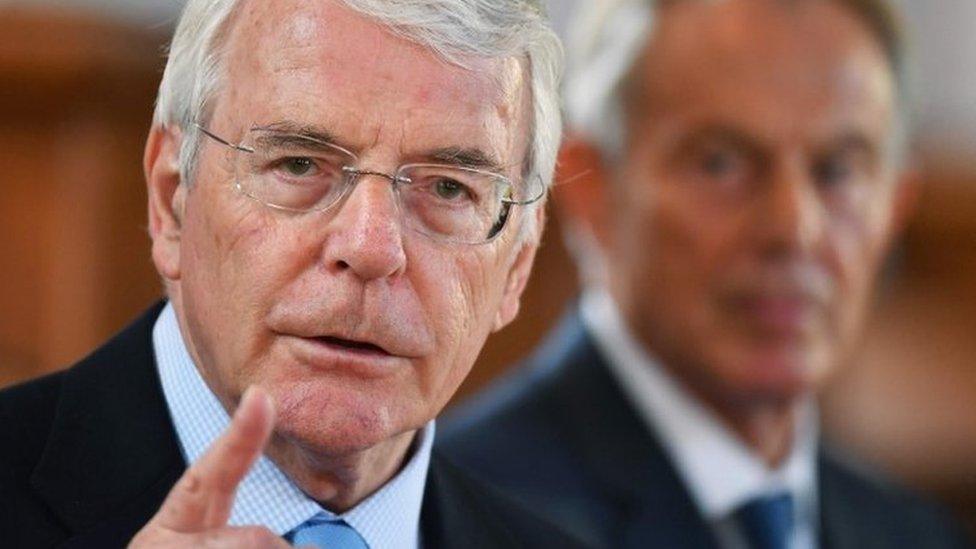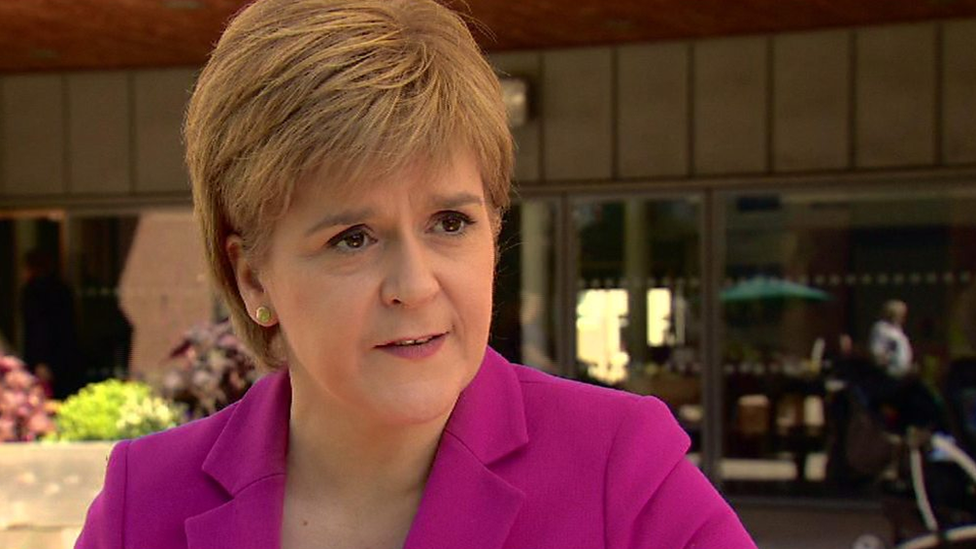Could Brexit threaten unity of the UK?
- Published

John Major said there was a "serious risk" of another independence referendum
Is John Major correct when he says that Brexit could threaten the unity of the UK?
He is assuming that if the UK votes to leave the EU but Scottish voters declare they want to stay in, then we could see the SNP calling, and winning, a second referendum on Scottish independence.
It is true that Scottish First Minister Nicola Sturgeon has said that in those circumstances a second referendum on independence is a real possibility.
She even put that in her most recent manifesto. But she has never said it's a certainty. And that's because she doesn't want to commit to holding a referendum she might not win.
If Scotland votes one way on 23 June and the rest of UK votes another way - if as Sturgeon puts it "Scotland is dragged out of the EU against its wishes" that will undoubtedly provoke fury among many Scottish voters.
Physical border?
Nationalist politicians will claim that Scotland is once again being dictated to by England. And there are many eager campaigners in Scotland who desperately want the chance to vote again on the independence question as soon as possible.
But the SNP leadership are not so eager to rush into another referendum. Many senior figures in the party warn that Brexit will throw up some additional issues they don't yet have answers for.

Nicola Sturgeon has said that if "Scotland is dragged out of the EU against its wishes" that could spark another independence referendum
If an independent Scotland was an EU member but the UK was not, would we need a physical border between Scotland and England?
What currency would an independent Scotland use? It could hardly claim it would share sterling with the rest of the UK if one country were inside the EU and the other was not.
What would happen to the trading relationship between Scotland and its biggest economic partner - UK - if only one of those countries was a member of the EU?
And while it's not directly related to the EU, the currently low price of oil does significant harm to the economic arguments in favour of Scotland going it alone.
Polls are not currently showing a majority of Scots saying they would vote for independence - even when they are asked to imagine a post-Brexit scenario.
The hard fact is that the SNP will not call another referendum until they are certain they can win it.
Because they know if they lose again they really will not be able to ask the question again for at least a generation.
Emotional issues
Ideally, the SNP will wait until polls suggest 60% of Scottish voters will vote "Yes" and they want to see that majority sustained for at least six months before they dare call another vote.
Most of the senior politicians I have spoken to do not believe Brexit alone will necessarily produce that kind of majority.
Of course it is foolish to try to predict the future in politics - and even harder when trying to imagine how voters will respond to emotional issues such as national sovereignty and identity.
Maybe the idea of Scotland's wishes being overridden by the votes of the rest of the UK could produce a remarkable turnaround in popular sentiment toward independence.
If it does, the SNP will surely pounce on the opportunity to call another vote - something the prime minister has previously said he would resist.
And legally, it is up to Westminster to decide whether or not to allow another referendum.
But after the apparent certainty among Remain campaigners that Brexit will provoke Indyref2 it will be pretty hard for the Westminster government to deny Scotland the chance to vote again.
- Published9 June 2016
